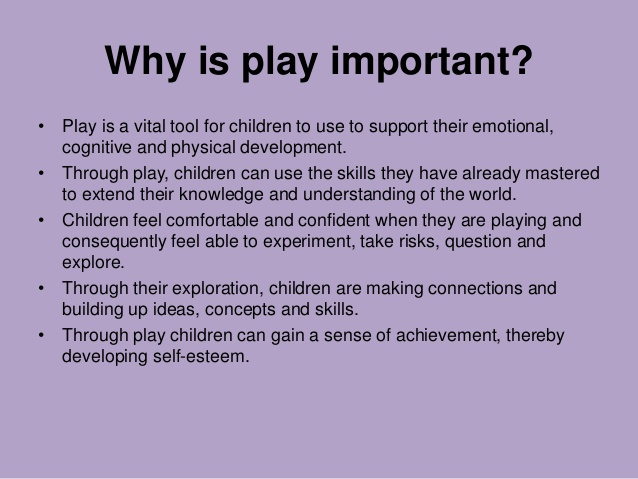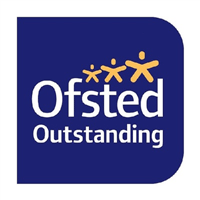Learning at Nursery
Did you know?
Studies have shown that, 92% of a child's learning takes place at home and not in school so we know that you have already achieved a lot of valuable learning with your child before they even step foot in the school door.
Did you know?
92% of a child's learning takes place at home!
The emphasis of good nursery practice is in the doing, not the end result. All our activities have sound educational purposes behind them. Should your child present you with a piece of work which to your adult eye needs explanation, please value it and treat it with respect. Your child will have concentrated for a span of time to produce this effort. If you cannot see the learning in your child’s work please ask a member of staff to explain – they will be delighted to tell you.
During the time your child is in nursery you should see marked changes in their ability to:
1. Make friends
2. Become more independent
3. Concentrate
4. Share
5. Listen
6. Help other children
7. Develop early reading, writing and number skills
8. Develop physical skills – both body movements and small manipulative abilities
9. Choose to undertake activities and complete tasks
We are here to provide many opportunities for your child to develop socially, emotionally, morally, intellectually, physically and spiritually.
At Tanglewood Nursery School we follow the areas of Learning and Development identified in Development Matters in the Early Years Foundation Stage (EYFS). The areas are divided into ‘Prime’ and ‘Specific’.
The ‘Prime’ areas are fundamental throughout the EYFS, they run through and support learning in all other areas, ‘Specific’ areas include essential skills and knowledge.
The Prime Areas of Learning
Personal, Social and Emotional Development
This area of development is critical for children in every aspect of their lives. It enables them to succeed in all the other areas of learning. Experiences are provided which lead to the development of a positive sense of self, emotional well-being, respect for others and social competence. Children develop a sense of belonging in a secure environment where they can gain confidence and learn to be independent. They begin to identify different kinds of relationships with adults and other children. They begin to share, co-operate and make friends. Children learn best through interesting activities which they enjoy, can control and which offer success. In this way they remain motivated to carry on learning and respond positively to given and self-chosen challenges. A happy child is a happy learner.
Physical Development
Children are encouraged and supported to use a range of equipment safely, and exercise indoors and outside in order to develop gross motor skills. They gain confidence from improving their ability to climb, balance and move with control, and from learning games skills such as throwing and catching. From starting with finger painting on paper, children improve their fine motor skills by being exposed to a range of implements including simple tools and the computer keyboard and mouse. An assortment of toys and equipment have been chosen to help promote the acquisition of manual dexterity and control as well as hand-eye co-ordination. Children are encouraged to think about healthy lifestyles; they may prepare their own snack, and make healthy choices in relation to food.
Communication and Language
The main focus in this area of the curriculum is on the development of speaking, listening, attention and concentration. The adults in each classroom respond to children’s individual needs, encouraging vocabulary and fluency. Attention and listening improve as we play sound games using music and voice.
The Specific Areas of Learning
Literacy
Through a range of play opportunities, children begin to see the need to write as a form of communication. They are then supported in the development of the skills required. Storytime provides us with a rich creative environment upon which to build an understanding of story structure and characterisation. Children are encouraged to share books and a love of stories, as well as using them as a resource to find out more about the world around them.
Mathematics
At Tanglewood we aim to give all children a wide variety of mathematical experiences. Through songs, stories, imaginative play, games, block building, sand, water, technology and art, they will use mathematical language and build mathematical concepts using them to solve practical problems. While playing indoors and outdoors children will become familiar with counting, sorting, matching, observing patterns, making connections, recognising relationships and working with numbers, shapes, space and measure. Through play, they will develop the confidence to experiment with ideas and apply their mathematical knowledge to everyday situations.
Understanding the World
Children will have opportunities to talk about past and present events in their own lives and in the lives of family members. They will learn to respect others, acknowledging and celebrating differences, and gaining knowledge of their own culture and those of others. Children will have opportunities to talk about the features of their own immediate environment and how environments vary from one another. They will begin to make observations of animals and plants and explain why some things occur, and talk about changes. Children will recognise that a range of technology is used in places such as homes and schools. They will be able to select and use technology for particular purposes e.g. using a camera to take a photo of a friend.
Expressive Arts and Design
At Tanglewood we encourage children to develop their creative and imaginative skills by providing opportunities to explore a wide range of materials and processes to stimulate their tactile and sensory responses. They are encouraged to represent their own ideas, thoughts and feelings through art, music, design and technology, dance, role-play and stories. We provide areas equipped to encourage children to explore colour, shape, texture and pattern; musical instruments, sounds and rhythm; imaginative role play through stories, songs and home experiences. We believe that all areas are inter-linked and depend on each other to support a rounded approach to child development. All the areas are delivered through planned, purposeful play, with a balance of adult-led and child-initiated activities
The Importance of Play

Behaviour
At Tanglewood we encourage positive behaviour, which helps to promote self-esteem and confidence.
Our aim is to provide opportunities for your child to try things out and to make choices.
Children need to be encouraged to make decisions and to come to understand the consequences of their decision making.
Never forget that your child will only have one childhood! Enjoy it together!
British Values
Promoting British Values at Tanglewood Nursery School
The fundamental British values, identified by the government in the 2011 Prevent Strategy, are:
- Democracy
- Rule of law
- Individual liberty
- Mutual respect and tolerance for those with different faiths.
The statutory framework of the EYFS (2014) outlines the expectation that Early Years settings will actively promote these fundamental British values and comply with the 'Prevent Duty' under the Counter Terrorism and Security Act 2015, aimed at preventing people from being drawn into terrorism.
At Tanglewood these values are reinforced regularly in the following ways:
Democracy:
Making decisions together (PSED, Self-confidence and self-awareness) Children are encouraged to voice their opinions and preferences. They are encouraged to develop enquiring minds where questions are valued. Active listening is modelled and encouraged. Their views are valued. When appropriate, opportunities are given to demonstrate democracy in action, e.g. when planning changes to the environment (indicating favourite places to play outside) and in choosing activities and stories.
Rule of Law:
Understanding that rules matter (PSED Managing feelings and behaviour) All adults model and talk about positive behaviour and acknowledge with specific praise whenever possible. Children are encouraged to recognise and talk about their feelings and those of others. Staff encourage children to think about how their behaviour impacts upon others. Children begin to understand boundaries and the importance of sharing and of accepting the needs of others. They begin to negotiate and empathise.
Individual Liberty:
Freedom for all (PSED Self-confidence and self-awareness, The World: People and Communities) Children develop a positive sense of themselves, e.g. through planned risk taking, talking about their learning through Learning Journeys and having their ideas and opinions valued. Staff seek to promote a „growth mind-set‟ to value effort over result, and thus promote self-esteem. Children feel safe in nursery. They are encouraged to make informed choices and to assert themselves in an appropriate way, e.g. by saying “Stop, I don‟t like it.”
Mutual Respect and Tolerance:
Treat others as you would wish to be treated (PSED: Managing feelings and behaviour, Making relationships, and The World: People and Communities) With a strong whole-school ethos of inclusion, all members of the school community are expected to treat others with respect. We celebrate different cultures, traditions and celebrations, e.g. through stories, music, songs and pictures. Staff challenge gender, cultural and racial stereotypes.
Ref: Prevent Duty Guidance 2015 for Early Years



